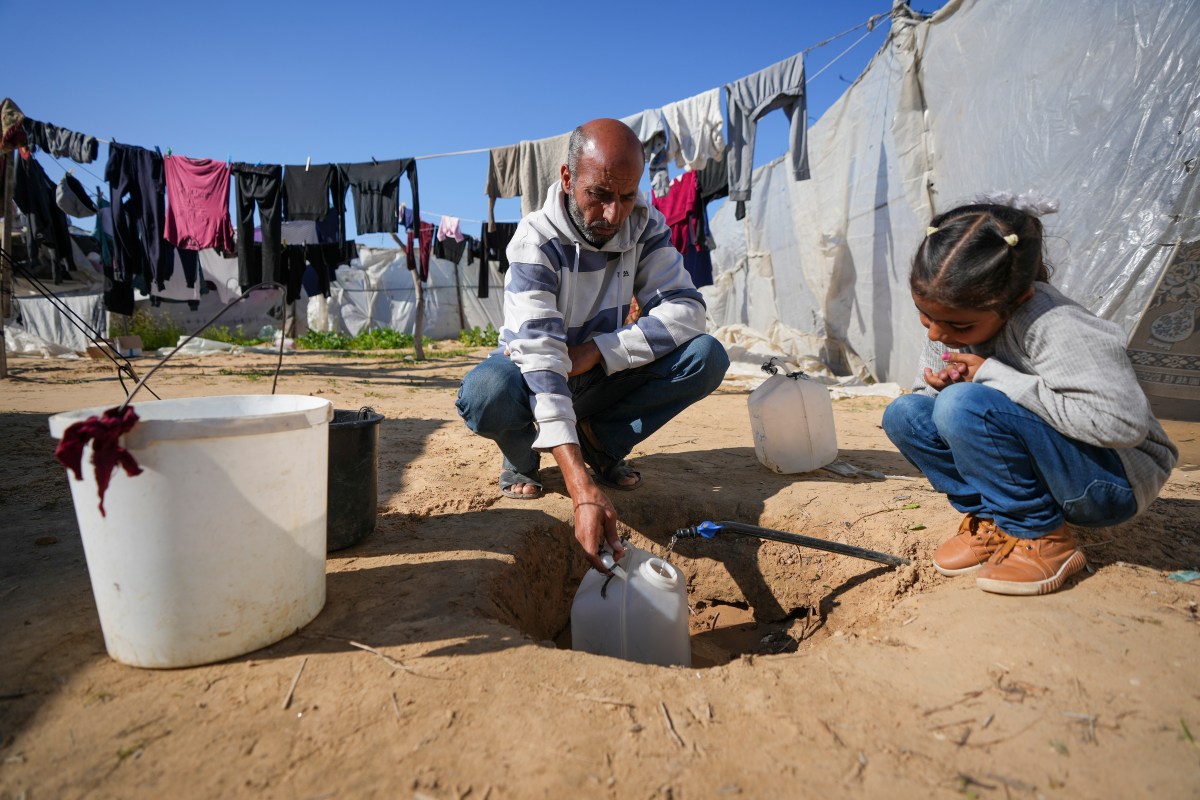Water as a Weapon: Médecins Sans Frontières Accuses Israel in Gaza Conflict
In a damning report, Médecins Sans Frontières (MSF) has accused Israel of weaponizing water access in Gaza, exacerbating the humanitarian crisis amid ongoing conflict. The international medical organization alleges that Israel’s restrictions on clean water supplies violate international law, leaving civilians vulnerable to disease and dehydration. The claims, made in late 2023, highlight the dire conditions in Gaza, where infrastructure collapse and blockades have compounded suffering. MSF warns that such tactics could amount to collective punishment, raising urgent ethical and legal concerns.
The Allegations: Deprivation as a Tactical Strategy
MSF’s report details how Gaza’s water infrastructure—already strained by years of blockade—has been further crippled since hostilities escalated. Over 96% of Gaza’s groundwater is unfit for human consumption, according to the UN, and Israel’s recent cuts to piped water and fuel supplies have left desalination plants inoperable. “Water is life, and denying it is a form of warfare,” says Dr. Aisha al-Razi, an MSF coordinator in Gaza. “Children are drinking from puddles, and hospitals can’t sterilize instruments.”
Israeli officials deny deliberately targeting water access, asserting that Hamas’s use of civilian resources for military purposes forces difficult decisions. “We provide humanitarian corridors, but Hamas diverts aid and infrastructure for tunnels and rockets,” stated Defense Ministry spokesperson Lt. Col. Jonathan Weiss. However, UN data shows Gaza’s average daily water supply has dropped to 15 liters per person—far below the WHO’s 50-liter minimum for basic needs.
The Humanitarian Fallout: Disease and Desperation
The consequences are stark:
- Rising mortality: Waterborne illnesses account for 25% of patient admissions in Gaza clinics, per MSF.
- Collapsing sanitation: Sewage systems fail without power, contaminating scarce water sources.
- Malnutrition spikes: Dehydrated mothers struggle to breastfeed infants, with acute child malnutrition doubling since 2022 (UNICEF).
Dr. Youssef Hammoud, a Palestinian hydrologist, explains: “Gaza’s coastal aquifer is contaminated with seawater and sewage. Without desalination, each sip is a gamble.” Meanwhile, Israel’s Coordinator of Government Activities in the Territories (COGAT) cites “security checks” for delayed water truck deliveries, though aid groups report permits routinely denied.
Legal and Ethical Crossroads
International law experts weigh in on the controversy. “The Geneva Conventions prohibit targeting objects indispensable to survival, including water infrastructure,” notes Dr. Elena Harper, a humanitarian law professor at Geneva University. “Even in siege warfare, parties must allow civilian access to essentials.”
Conversely, former Israeli military lawyer Col. David Benjamin argues that Hamas’s embedding in civilian areas complicates compliance. “When Hamas stores rockets in water facilities, the lines blur. Israel has a duty to protect its citizens first.” Yet MSF counters that proportionality is key: “Civilian suffering cannot be justified as collateral damage,” asserts al-Razi.
Global Reactions and Calls for Action
The EU and WHO have demanded immediate water access restoration, while the US urges “all parties to avoid harming civilians.” Meanwhile, South Africa’s genocide case against Israel at the ICJ cites water cuts as evidence of intent to “destroy Gaza’s population.”
Local NGOs are improvising solutions:
- Solar-powered desalination units funded by international donors.
- Underground rainwater harvesting projects.
But these remain stopgaps. “Without a ceasefire and lifted blockades, Gaza’s water crisis will morph into a generational catastrophe,” warns Hammoud.
What Comes Next?
The allegations against Israel underscore broader debates about warfare ethics in urban conflicts. As climate change intensifies water scarcity globally, experts fear such tactics could set a dangerous precedent. “Water wars aren’t futuristic—they’re here,” says Harper. For now, MSF presses for independent investigations and sanctions against deliberate deprivation.
Call to Action: Readers can support humanitarian efforts by donating to MSF’s Gaza Water Fund or advocating for policy changes through organizations like Amnesty International. The clock is ticking for Gaza’s thirsty millions.
See more CNN Headline


